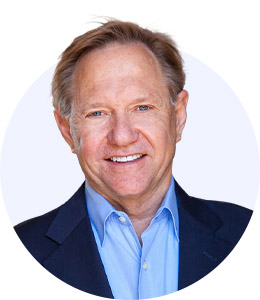A flashback is a past incident recurring vividly in the mind. When one has been around a long time, there are more situations that bring back past situations and/or experiences. Almost 20 years ago, I put together over 100 questions I had received from people and published them. The book is titled 101 Answers to Questions Leaders Ask. The goal was to be helpful to those in leadership by providing suggested ways to respond to frequently asked questions. The work I do today often causes flashbacks to the writing of that book!
Here is a recent flashback. This past week, a supervisor’s question was, “What should I do when people who do not report to me share things that are negative?” This question was shared with me back in 2000, during my very first agreement to help a hospital. The person said that other department managers were sharing their concerns with her about the CEO. They felt there was too much on their plates and the expectations to improve the patient experience were too high. I asked her if this happened often. She shared that yes, people come to her quite often, at times in confidence. While she did not report directly to the CEO, she had a very good relationship with him. She also oozed the desire to help her colleagues. She provided a sympathetic ear.
She was taken aback by my observation. I asked, “Do you feel they are telling you these things so you will pass them along to the CEO?” I noted that by carrying their messages, she was not helping them or the organization. While she was not doing it on purpose, she was enabling those managers. Since she was carrying their messages for them, they did not learn how to do it themselves. I suggested the next time these managers come to her that she listen carefully, then ask them, “What are you going to do?” I urged her to share that they need to carry their own messages and that while she would help them learn how, she would no longer carry the messages for them. She called me after she did this and said it was like a weight had been lifted from her.
While there are exceptions, I find that 99 percent of the time, the person people are seeking out is usually someone whom they feel will agree with them and/or carry their message. However, we are all adults. We need to carry our own messages.
With all the changes in leadership that have occurred over the last several years, there are lots of new leaders. That means that most items like this one need to be repeated often. This is not a bad thing. Great organizations do repeat key items over and over, through different communication vehicles, to ensure that people hear and process them. Repetition is reinforcement.
I am very blessed that each week I get to be in organizations, at conferences, on calls, and so forth. All of these events provide me with the opportunity to learn and teach. For those who don’t know me well, my background is in teaching. I have bachelor’s and master’s degrees in education from the University of Wisconsin–Whitewater. I spent ten years working in public education before I transitioned into healthcare. Today, I find great joy being in classrooms, both in person and virtually. These are most often via institutions that offer programs in health administration. I still consider myself a teacher. In fact, I believe we are all teachers, just in different types of classrooms.
In addition, I get to spend time working with people who are new to leadership as well as CEOs of multi-billion-dollar organizations. As different as they might seem on the surface, they all have much in common. In their DNA is a desire to be helpful. Often, the more skilled a person is, the more helpful they are. Also, these individuals are seekers of knowledge on the best solutions to the situations they are in.
I want to share an exercise I have been conducting that organizations find very helpful. Its goal is to create leadership consistency in responding to staff’s concerns/questions. Before the workshop, a request is sent to all attendees asking them to anonymously fill out a one-question survey. Here is what we ask: When you are talking with those you lead, what questions are you hearing? These questions are then collected. Many of the questions are ones that senior leaders can quickly answer. There are other questions that are consistently the most-often heard by managers and supervisors. These questions fall into a number of categories: staffing, pay, benefits, rumors, hour of operations, the organization’s financial condition, equipment, supplies, etc.
We then divide the room into groups, with each group receiving one question. This is the assignment: When you hear that question, what do you recommend is the best way to respond? By the end of the session, the organization takes the work of all the groups and creates a tool kit on frequently heard questions with recommended responses.
This exercise helps those currently in leadership roles and is also wonderful for those new leaders who come aboard. It is a safe way to share what is being heard. It also creates consistency in responses, helps the senior leader team become more aware of how to improve communication, and provides a nice road map for additional development. Having approved ways to respond to questions also greatly reduces manager anxiety—and the communication consistency reduces employee anxiety.

